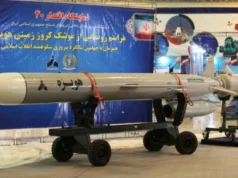Saudi Arabia’s role in navigating global polarization and trade wars

By M A Hossain
The world is witnessing an era of heightened political polarization and escalating trade wars, reminiscent of the Cold War era but with an even greater economic impact.
These developments, often intertwined, have significantly altered the global economic landscape. The trade war between the United States and China, for instance, has had ripple effects worldwide, while even close allies such as the US and the European Union, Canada, and Mexico have found themselves engaged in economic disputes.
The resulting economic uncertainty has manifested in slowed global growth projections, declining stock markets, and volatile commodity prices.
Amid this turbulence, Saudi Arabia and its Gulf Cooperation Council (GCC) allies have carefully navigated these challenges to protect their economic interests and regional stability.
They have strategically balanced relations with major global powers while simultaneously positioning themselves as key mediators in conflicts, including the war in Ukraine.
Saudi Arabia, in particular, has leveraged its economic influence, energy resources, and diplomatic prowess to shield itself from global instability and contribute to international peacemaking efforts.
As trade wars intensify, global economic growth has slowed considerably. The Organisation for Economic Co-operation and Development (OECD) recently downgraded its forecasts for global growth in 2025 and 2026, citing economic struggles in the US, Canada, Mexico, and the UK.
Simultaneously, the Dow Jones Industrial Average has experienced sharp declines, reflecting market uncertainty and trader anxiety. The global economy appears increasingly fragile due to persistent geopolitical tensions and economic protectionism.
One of the most affected industries has been energy. Brent crude oil prices have dropped by more than 15% from their peak of over $82 per barrel in January to below $70 per barrel.
Goldman Sachs has adjusted its oil price forecast downward, now projecting Brent crude to reach $71 per barrel by December. This decline can be attributed to economic slowdowns fueled by restrictive tariff policies, supply chain disruptions, and the financial market’s concerns over prolonged trade disputes.
Given that Saudi Arabia and other GCC states rely heavily on oil exports, economic slowdowns in key markets present a direct threat to their financial stability.
To mitigate this, Saudi Arabia has actively sought to diversify its economy through its Vision 2030 initiative, investing in sectors such as tourism, technology, and infrastructure.
However, the immediate reliance on oil revenue means that any drop in demand due to trade wars or economic contractions remains a critical concern.
Saudi Arabia and the GCC states have long been situated at the crossroads of global trade routes, benefiting from economic stability and expansion.
However, heightened global conflicts and regional instability have posed significant risks. The Houthis’ attacks on commercial shipping in the Red Sea, for instance, have disrupted trade flows, increased shipping and insurance costs, and diverted trade routes, impacting the region’s economic prosperity.
Despite these challenges, Saudi Arabia has actively positioned itself as a neutral player aiming to de-escalate conflicts. The Kingdom has taken a diplomatic stance in major geopolitical conflicts, including the war in Ukraine.
Since the Russian invasion in February 2022, Saudi Arabia has continuously advocated for a political solution, facilitated humanitarian exchanges, and engaged in mediation efforts.
Riyadh’s diplomatic outreach has resulted in the release of thousands of prisoners and reunification of families from both sides.
In May 2023, Saudi Arabia hosted Ukrainian President Volodymyr Zelensky at the Arab League Summit in Jeddah, a move that signified the Kingdom’s commitment to brokering peace.
Later that year, Saudi Arabia convened national security advisers from over 40 nations and international organizations to foster diplomatic dialogue. These efforts have cemented Saudi Arabia’s reputation as a key peacemaker in the Ukraine conflict.
Most recently, Saudi Arabia has played an instrumental role in arranging high-level discussions between senior officials from Russia, Ukraine, and the United States.
In February, Russian officials engaged in discussions with Trump administration representatives in Riyadh to explore avenues for de-escalating tensions and achieving a ceasefire in Ukraine.
This initiative was followed by separate meetings in Jeddah on March 10, where Crown Prince Mohammed bin Salman hosted talks with Ukrainian President Zelensky and a US delegation led by Secretary of State Marco Rubio and National Security Adviser Mike Waltz.
During these discussions, Saudi Arabia facilitated a face-to-face meeting between American and Ukrainian representatives to repair strained relations following an unsuccessful White House diplomatic encounter.
These negotiations led to a proposal for a 30-day ceasefire, which Russian President Vladimir Putin has agreed to in principle. While specific details remain under discussion, the diplomatic groundwork laid by Saudi Arabia has been a critical step toward reducing hostilities.
US envoy Steve Witkoff, speaking to Fox News, confirmed that further diplomatic discussions between the US and Russia are scheduled to take place in Jeddah.
According to Witkoff, progress has been made on key issues, such as an energy and infrastructure ceasefire and a Black Sea moratorium on military activity.
If Ukraine agrees to these conditions, the groundwork for a comprehensive ceasefire may be within reach. The world is now watching closely as these negotiations unfold in Saudi Arabia.
Saudi Arabia’s diplomatic success in Ukraine could serve as a model for addressing other major conflicts, including the ongoing wars in Gaza, Lebanon, and Sudan.
The Kingdom has demonstrated a willingness to mediate and propose solutions to even the most complex geopolitical disputes. While previous peace initiatives, including offers to Iran and Israel for comprehensive regional agreements, have not yet yielded significant results, Saudi Arabia remains committed to finding paths to peace.
If the Ukraine peace talks in Saudi Arabia result in a lasting ceasefire, it could set a precedent for similar diplomatic breakthroughs in other conflict zones.
This could alleviate some of the economic burdens associated with war, particularly by stabilizing energy markets and reducing trade disruptions.
Moreover, successful mediation would enhance Saudi Arabia’s influence on the global stage, reinforcing its role as a key geopolitical player.
As global political polarization and trade wars continue to destabilize economies, Saudi Arabia has adopted a pragmatic approach, balancing economic interests with diplomatic initiatives.
By navigating these challenges carefully, the Kingdom has emerged as a critical intermediary in global disputes, particularly the war in Ukraine.
Saudi Arabia’s ability to engage with all sides-Russia, Ukraine, the United States, and other international stakeholders-demonstrates its growing role as a power capable of fostering dialogue and reducing hostilities.
With diplomatic efforts intensifying and ceasefire talks advancing, Saudi Arabia’s role in shaping global stability cannot be overstated.
If these efforts succeed, not only will Saudi Arabia gain diplomatic credibility, but the global economy could also benefit from de-escalation and renewed cooperation.
The world now awaits the outcomes of the Jeddah peace talks, hoping that they mark a turning point toward resolving one of the most significant conflicts of our time.
Whether these diplomatic efforts extend beyond Ukraine and into other conflict zones remains to be seen, but Saudi Arabia has undoubtedly positioned itself as a key player in the evolving global order.




